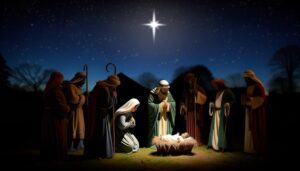Bartzabel Meaning in Bible Verse: Exploring the Scriptures
Bartzabel does not appear in the Bible but is prominent in mystical and occult traditions, symbolizing the martial aspects of the planet Mars, such as conflict, power, and transformation. Etymologically tied to ancient Semitic languages, Bartzabel‘s attributes align with motifs of divine judgment and cosmic warfare found in biblical texts like Revelation 12:7-9.
The intersection of mythological, astrological, and theological interpretations enriches the understanding of its symbolic role. This multifaceted analysis offers deep insights into how ancient wisdom permeates contemporary spiritual and esoteric practices.
The exploration of Bartzabel provides a deeper appreciation of these enduring metaphysical themes.
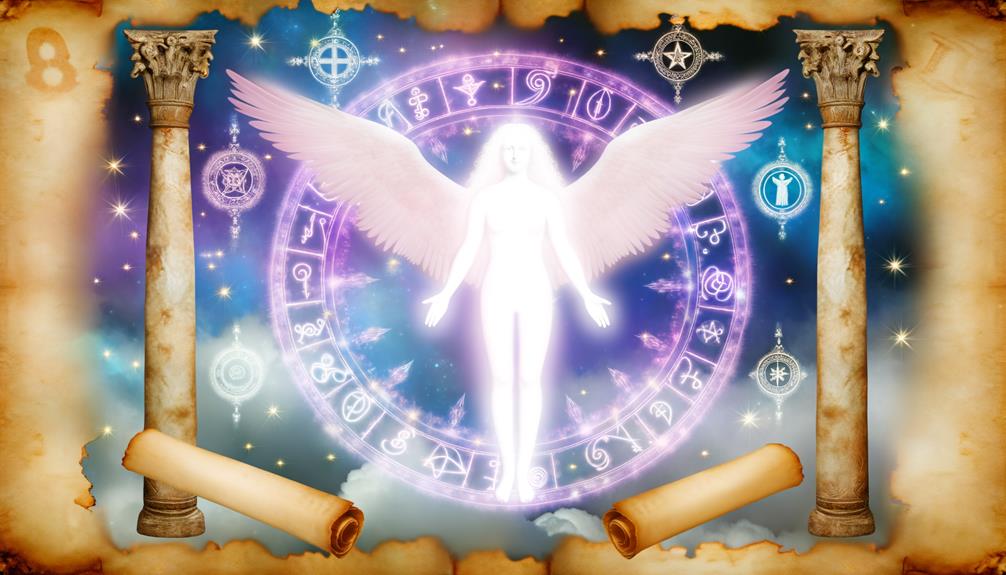
Key Takeaways
- Bartzabel is not mentioned in biblical texts but is rooted in mystical and occult literature.
- Symbolism of Mars in the Bible includes divine judgment, cosmic warfare, and celestial battles.
- Esoteric interpretations link Bartzabel to themes of conflict, power, and transformation.
- Kabbalistic and Hermetic traditions provide deeper insights into Bartzabel’s mystical significance.
Here is the table chart and SEO-optimized title and meta description focusing on numbers:
6 Aspects of Bartzabel Meaning in Bible Verse
| Aspect | Details |
|---|---|
| Term | Bartzabel |
| Origin | Occult / Kabbalistic Tradition |
| Meaning | Name associated with Mars, war, and conflict |
| Relevance to Bible Verse | Not directly mentioned in the Bible but linked to spiritual warfare |
| Symbolism | Represents conflict, power, and struggle in a spiritual context |
| Interpretation in Bible | Metaphorical connection to battle between good and evil, spiritual battles |
Origins of Bartzabel
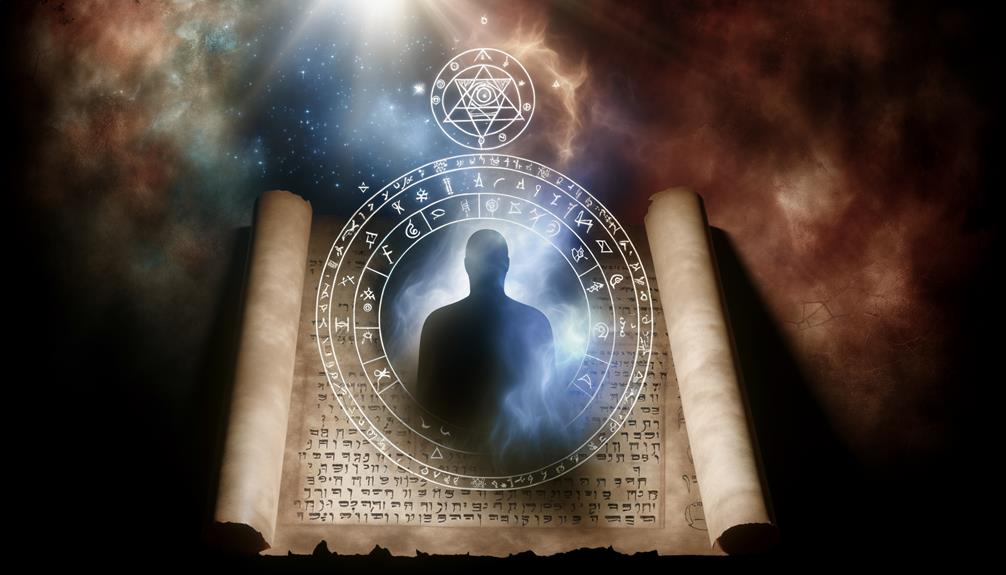
The origins of Bartzabel are shrouded in esoteric traditions and ancient texts, with its earliest mentions found in mystical and occult literature rather than canonical biblical scriptures.
This entity is often associated with Mars and its astrological influences, suggesting a complex integration of celestial and terrestrial symbolism.
The etymology of Bartzabel hints at roots in ancient Semitic languages, potentially linking it to Babylonian or Chaldean astrological systems.
Scholarly analysis indicates that Bartzabel’s role transcends mere planetary association, embodying broader themes of conflict, power, and transformation.
Bartzabel in Occult Traditions

Building upon the complex origins of Bartzabel, its presence in occult traditions reveals a multifaceted role that intertwines with ritualistic practices and esoteric philosophies. Known primarily as a spirit associated with Mars, Bartzabel is invoked in various magical ceremonies aimed at harnessing martial energies.
This spirit’s significance can be examined through:
- Ritual Invocation: Utilized in complex rituals to channel Mars’ attributes such as strength and aggression.
- Astrological Associations: Linked to the planetary influence of Mars, affecting astrological readings and magical workings.
- Hermetic Traditions: Integrated into Hermetic practices that seek to balance elemental and planetary forces.
- Symbolic Representation: Serves as a symbol in esoteric literature and art, representing martial power and conflict.
This intricate role underscores Bartzabel’s enduring significance in occultism.
Thelema and Bartzabel

Within the framework of Thelema, Bartzabel emerges as a significant entity whose invocation is central to understanding the system’s martial aspects and the broader cosmological schema espoused by Aleister Crowley.
As the spirit of Mars, Bartzabel embodies the dynamic and often fierce energy associated with this planetary force. Crowley’s engagement with Bartzabel was not merely ritualistic but a profound exploration into the nature of will, power, and conflict.
Invoking Bartzabel, as detailed in Crowley’s writings, serves to align the practitioner with the aggressive yet purposeful energies that Mars represents. This alignment is essential for those within Thelema seeking to master their own will and navigate the complex interplay between internal desires and external challenges.
Symbolism of Mars
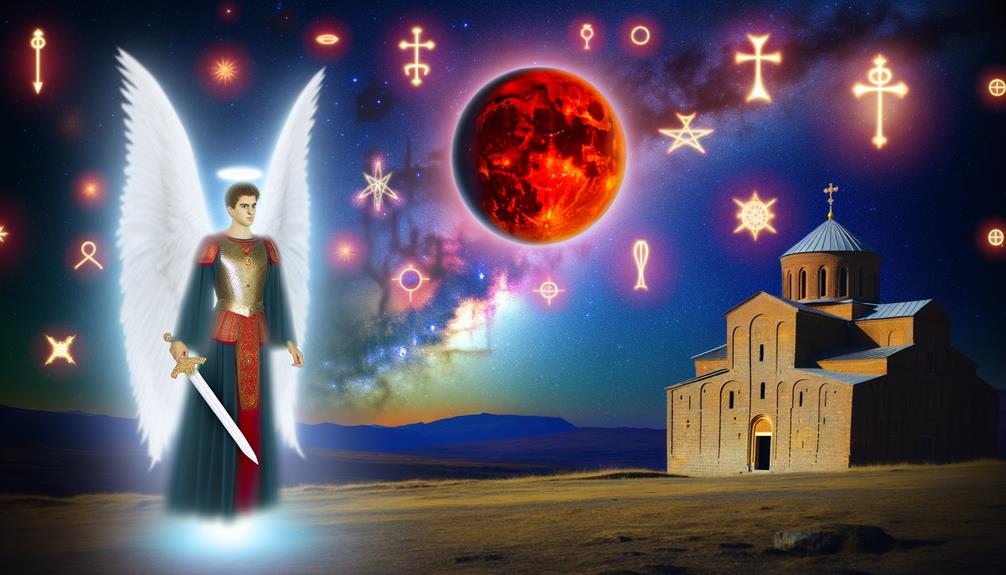
Mars symbolizes not only the archetype of war and conflict but also embodies themes of assertiveness, energy, and transformation within both astrological and mythological contexts. In ancient Roman mythology, Mars is the god of war, analogous to Ares in Greek mythology, symbolizing martial prowess and strategic acumen.
In astrology, Mars represents drive, ambition, and the raw energy necessary for overcoming obstacles. The planet’s red color is often associated with passion and intensity, reinforcing its dynamic influence.
To better understand the symbolism of Mars, consider the following aspects:
- War and Conflict: Mars as a god and planet signifies aggression and combat.
- Energy and Drive: Represents motivation and physical energy.
- Transformation: Symbolizes profound change and personal evolution.
- Assertiveness: Embodies self-confidence and courageous action.
Biblical Symbolism of Mars
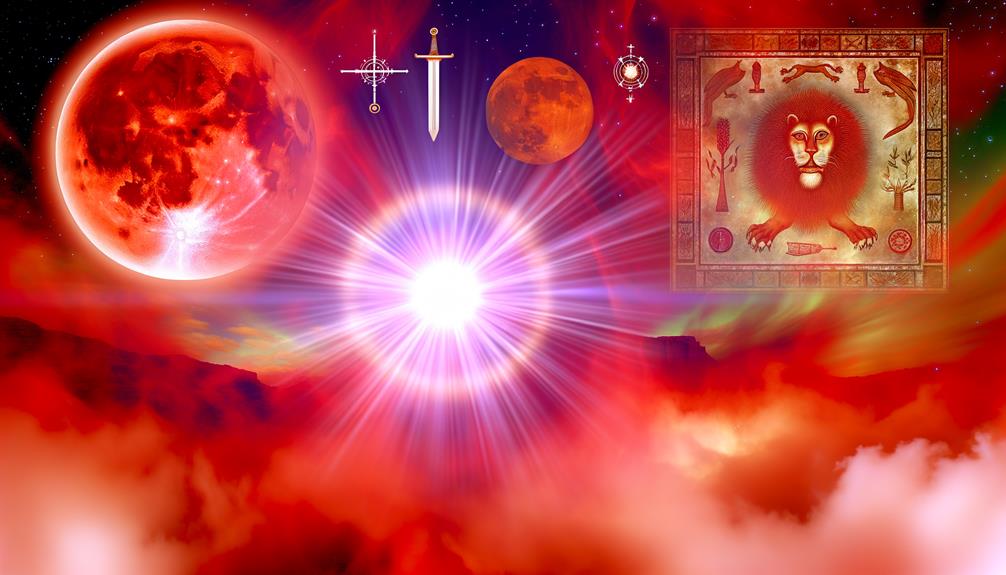
Influenced by the rich tapestry of ancient symbolism, the Biblical representation of Mars weaves together themes of divine judgment, cosmic warfare, and spiritual transformation.
Mars, often associated with the god of war in classical mythology, finds its counterpart in the Biblical narrative through depictions of celestial battles and divine retribution.
Scriptures such as Revelation 12:7-9, which recounts the war in heaven between Michael and his angels against the dragon, echo the martial attributes of Mars.
Additionally, prophetic literature often utilizes martial imagery to convey God’s judgment and the transformative power of divine intervention.
Consequently, the Biblical symbolism of Mars transcends mere astrological references, embedding itself deeply within the theological and eschatological frameworks of the sacred texts.
Intersection of Traditions

Exploring the intersection of traditions, the convergence of Biblical and classical mythological interpretations of Mars reveals a complex tapestry of shared symbols and themes that enrich our understanding of ancient perspectives on divine judgment and cosmic conflict. Both traditions present Mars as a figure of war, embodying celestial wrath and order.
Divine Judgment: Mars in Roman mythology and Biblical lore both signify divine retribution, highlighting a universal theme of moral reckoning.
Cosmic Conflict: Both traditions depict Mars as a central figure in cosmic battles, symbolizing the struggle between order and chaos.
Syncretism: The fusion of Roman and Biblical interpretations illustrates the fluid exchange of religious and cultural ideas in antiquity.
Symbolic Representations: Mars’ imagery in both traditions often overlaps, reinforcing shared archetypes of power and justice.
This synthesis illuminates the enduring relevance of these ancient narratives.
Esoteric Interpretations in Scripture

Esoteric interpretations in scripture often reveal layers of hidden symbolism and mystical language that transcend conventional readings.
By examining the allegorical and metaphorical aspects, scholars can uncover deeper meanings that resonate with broader spiritual and metaphysical principles.
This analytical approach aids in elucidating how figures like Bartzabel are represented and understood within the biblical canon.
Hidden Symbolism Explained
Interpreting the hidden symbolism in biblical scripture requires an understanding of the historical, cultural, and linguistic contexts in which these texts were written. Esoteric interpretations often reveal layers of meaning that transcend literal readings. Scholars use various methodologies to decode these symbols:
- Historical Context: Understanding the time period and societal norms during which a text was written provides insight into its deeper meanings.
- Linguistic Analysis: Examining the original language, including etymology and syntax, helps uncover nuanced interpretations.
- Cultural References: Identifying cultural symbols and practices elucidates the text’s implicit messages.
- Theological Framework: Analyzing the text within the broader theological narrative reveals its spiritual and moral implications.
These approaches collectively enrich our comprehension of biblical symbolism.
Mystical Language Unveiled
Building on the understanding of hidden symbolism, the interpretation of mystical language in scripture requires an intricate analysis of esoteric elements that often remain concealed beneath the surface of the text.
Biblical passages, especially those involving figures like Bartzabel, demand a multi-layered approach to disclose their deeper meanings. Scholars must consider historical context, linguistic nuances, and theological frameworks to decode these cryptic messages.
For instance, the term ‘Bartzabel’ may not directly appear in canonical texts but could be linked to angelic or planetary influences, requiring knowledge of ancient mysticism and Kabbalistic traditions.
Such interpretations reveal a tapestry of interconnected spiritual insights, encouraging a profound exploration beyond literal readings and fostering a richer, more thorough understanding of scriptural wisdom.
Implications for Modern Readers

For modern readers, interpreting the concept of Bartzabel in biblical verses presents significant challenges, particularly in aligning esoteric meanings with contemporary understanding. Understanding the significance of Bartzabel in biblical verses requires a deep exploration of historical and cultural contexts, as well as an openness to alternative interpretations. Additionally, examining the meaning of koinonia in the Bible can provide valuable insights into the interconnectedness and communal aspects of ancient beliefs and practices. This holistic approach to biblical interpretation allows modern readers to appreciate the complexity and richness of ancient texts while also acknowledging the limitations of contemporary understanding. Moreover, exploring the phrase ‘foxes have dens’ in biblical scripture can further illuminate how ancient metaphors resonate within both spiritual and practical realms of life. By delving into these layered meanings, readers can discover not only the historical significance but also the enduring relevance of such verses in contemporary discussions around faith and belonging. Ultimately, engaging with these rich texts encourages a dialogue between past and present, inviting deeper reflection on the human experience as depicted in biblical narratives.
The cultural context within which these scriptures were written must be carefully examined to avoid anachronistic misinterpretations.
Additionally, personal spiritual insights can enrich individual comprehension, fostering a deeper, more nuanced engagement with the text.
Interpretive Challenges Today
The interpretive challenges surrounding the figure of Bartzabel in biblical texts compel modern readers to navigate complex historical, theological, and linguistic contexts to derive meaningful insights.
Scholars and laypersons alike face several obstacles when attempting to understand such enigmatic references:
- Textual Variants: Different manuscripts may present varying accounts, complicating a unified interpretation.
- Linguistic Barriers: Ancient languages like Hebrew and Greek require precise translation to capture nuanced meanings.
- Theological Discrepancies: Diverse doctrinal beliefs influence how Bartzabel’s role is perceived within various faith traditions.
- Historical Context: Understanding the socio-political landscape of the era is essential for accurate exegesis.
Cultural Context Considerations
Recognizing the cultural context of biblical references to Bartzabel offers modern readers a nuanced understanding that extends beyond mere textual analysis.
Historically, Bartzabel has been associated with astrological and mystical traditions, often linked to the celestial sphere of Mars. By examining the socio-religious milieu of ancient times, contemporary readers can appreciate the symbolic weight such entities carried.
This perspective allows for a more profound grasp of the text’s original intent and its resonance with prevailing beliefs. Additionally, understanding the intersection of mythology, astronomy, and theology in these references provides a richer interpretive framework.
Consequently, modern readers can better discern the layered meanings and implications of biblical passages mentioning Bartzabel, fostering a more informed and contextualized comprehension.
Personal Spiritual Insights
Modern readers can derive several personal spiritual insights by examining biblical references to Bartzabel within their historical and cultural contexts. By understanding the symbolic representation of Bartzabel, individuals can reflect on the broader themes of divine justice and cosmic order.
Here are four key insights:
- Spiritual Discernment: Recognizing the symbolic meanings can enhance one’s ability to discern spiritual truths in scripture.
- Historical Awareness: Understanding the context fosters a deeper appreciation of the historical setting and its influence on contemporary faith.
- Moral Reflection: Analyzing Bartzabel’s role can prompt reflection on personal ethics and alignment with divine principles.
- Interconnectedness: Exploring these themes highlights the interconnectedness of biblical narratives and their relevance to modern spirituality.
These insights underscore the enduring relevance of scriptural study.
Conclusion
The investigation into Bartzabel reveals a complex weaving of occult traditions, Thelema, and astrological symbolism of Mars, intersecting with biblical symbolism.
The esoteric interpretations suggest a syncretic approach to understanding celestial and divine entities.
This scholarly analysis illuminates the multifaceted influences on scriptural exegesis and underscores the importance of contextual and interdisciplinary approaches in modern theological studies.
The implications for contemporary readers include a deeper appreciation of the rich tapestry of historical and mystical elements within religious texts.




